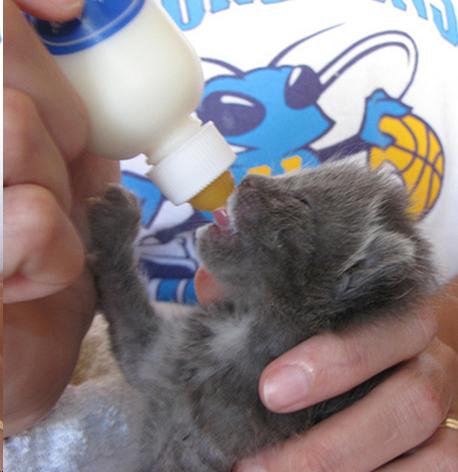Lecture Notes
Although the care of the puppies and kittens is best left up to the mother, there will be certain circumstances in which the owner must act as the mother to meet the needs of the newborn animals. If you find yourself in this situation, seek help from your veterinarian or local animal shelter, and keep a few general things in mind.
For feeding, hopefully the orphans were able to suckle from the mother during the first 24 hours in order to receive adequate colostrum. Colostrum is a special form of milk that contains immunoprotective factors. Beyond the first day of life, commercially prepared milk formulas are recommended and are readily available because they are nutritionally balanced to meet the needs of orphaned kittens and puppies. One example for kittens is KMR, or kitten milk replacer. It's important to feed the kittens or puppies frequently—every two to three hours for the first two weeks and then every four to five hours until they're about three weeks and at least four times per day until six weeks of age.
Weight gain should be constantly monitored as previously addressed.
And during the first two weeks, you'll also need to take over the mother's role of stimulating urination and defecation; this can be done by gently rubbing a warm washcloth or cotton ball on the kitten or puppy's belly, genital, and anal areas.
One of the most important considerations is that orphans no longer have the warmth of their mother, and so the ambient temperature must be slightly elevated and closely monitored.


